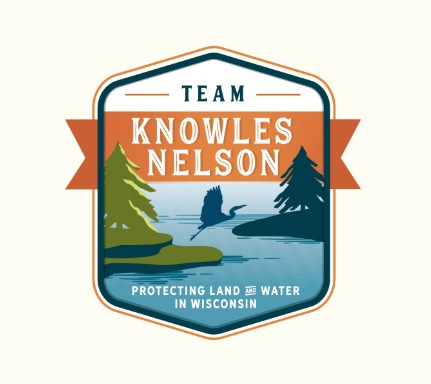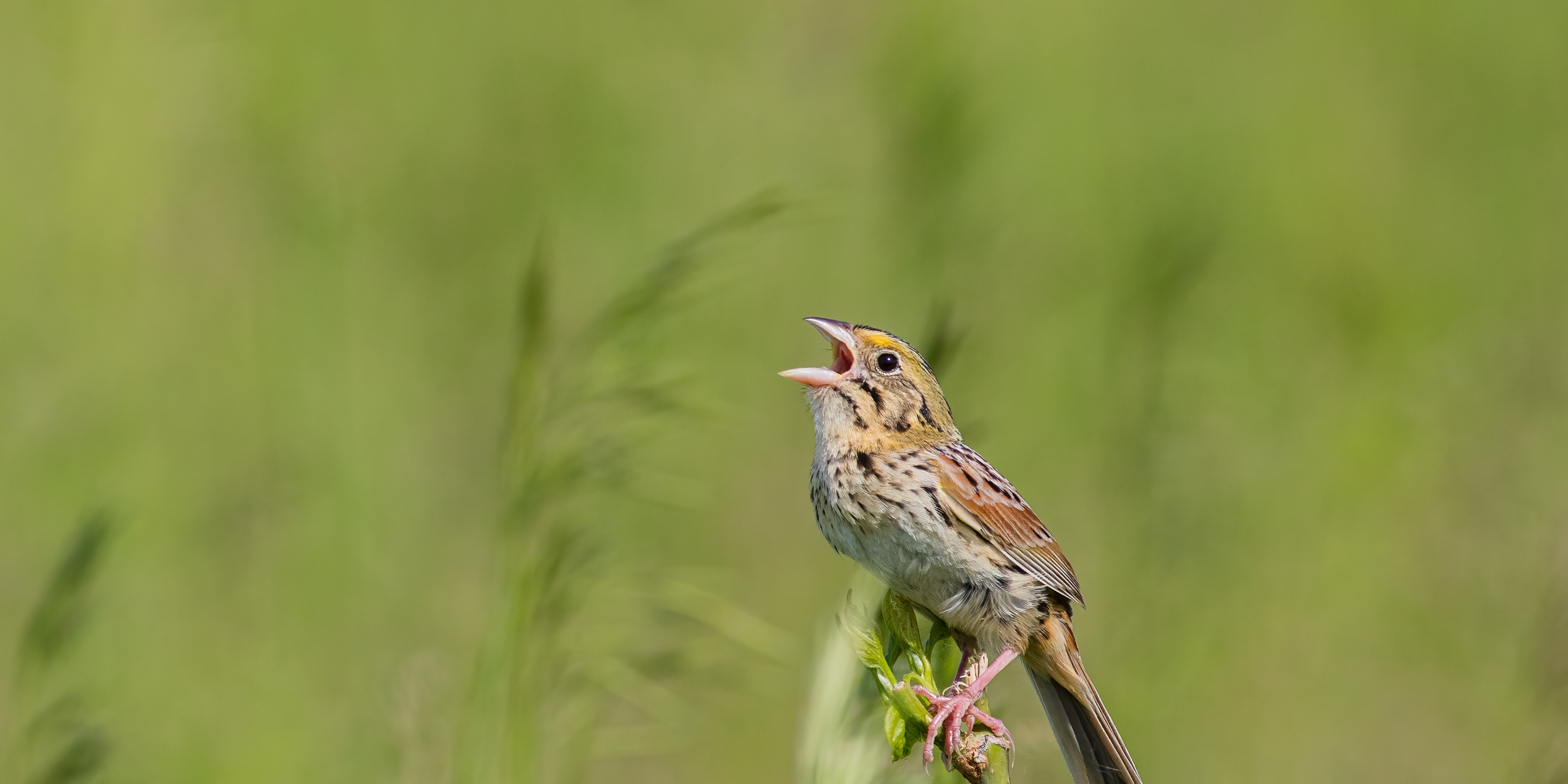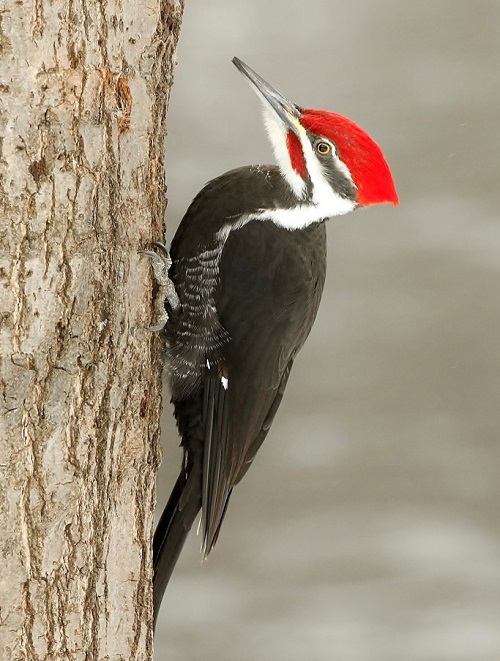Sandhill Crane Hunting Season Proposed in Wisconsin
Photo: Mary Carlson, USFWS
UPDATE - Jan. 6, 2026
The Wisconsin State Senate Committee on Financial Institutions and Sporting Heritage held a hearing on SB-112 in November of 2025. Just before the hearing, substitute amendments were attached to the bill removing the reimbursement of crop treatments for farmers, limiting the Wisconsin DNR’s ability to close or limit hunting in certain areas or at certain times, and reducing educational requirements for hunters. The Wisconsin State Assembly Committee on Sporting Heritage held a hearing on the companion bill, AB-117, January 6, 2026.
The Wisconsin Society for Ornithology, along with other partners testified in opposition to the bill and amendments at both hearings. The key points we made:
- It is fiscally irresponsible. Estimates by the Wisconsin DNR suggest that a crane hunt in Wisconsin will be costly and operate at a financial loss.
- There is no scientific evidence that suggests a Sandhill Crane hunt will reduce crop damage concerns for farmers.
- A hunting season in Wisconsin on breeding grounds critical to Sandhill Cranes is risky especially considering that potential Highly Pathogenic Avian Influenza (HPAI) could be devastating to crane populations. Thousands of Sandhill Cranes died this Spring due to HPAI. Experts at the International Crane Foundation argued that now is not the time to experiment with crane populations.
We are keeping an eye on whether either bill will move forward. Please contact your Legislative Representative and let them know how you feel about Sandhill Crane hunting in Wisconsin.
PAST ACTIONS
Wednesday, November 19, the Wisconsin Senate will hold a public hearing on a bill proposing a hunting season on Sandhill Cranes, at 9 a.m. The hearing is scheduled for room 201 Southeast, Wisconsin State Capitol, Madison, WI.
We are opposed to a widely unpopular hunting season that risks population stability and will operate at a significant financial loss for the state.
The proposal comes on the heels of unprecedented outbreaks of Highly Pathogenic Avian Influenza (HPAI), posing a significant risk to the stability of crane populationsworldwide. This past spring, thousands of Sandhill Cranes died of the virus in Indiana, marking the devastating loss of up to 2-3% of the Eastern population of the species. In just the past month, crane deaths in Europe have been estimated at nearly 40,000 individuals.
We do not feel this is the time to experiment with a hunting season on Sandhill Cranes in Wisconsin.
Several organizations, including the International Crane Foundation and the Southern Wisconsin Bird Alliance will be present to testify in opposition—and we invite you to stand with us.
If you are able, please join us at the State Capitol. If you are not able to attend the hearing you can contact your legislators as soon as possible to show your opposition to hunting Sandhill Cranes. Find representatives and their contact information here. Thank you for speaking up for the cranes. Together, we can ensure these remarkable birds continue to thrive in Wisconsin and beyond.
Tell Your Senators to Oppose the SPEED Act
The House of Representatives passed the Standardizing Permitting and Expediting Economic Development (SPEED) Act, H.R. 4776. This bill undermines environmental and legal protection, putting birds, other wildlife, and their habitats at risk. Rewriting the landmark National Environmental Policy Act (NEPA) would eliminate public participation, eliminating your voice on decisions for birds and their habitats in your own communities. Contact your Senator to let them know you should have the right to share your voice.
New ESA Rules Undermine Protection and Recovery
The federal government announced proposed rules that would weaken the Endangered Species Act (ESA). Urge Congress to keep one of the most effective laws ever enacted to prevent species extinctions.
Knowles-Nelson Stewardship Program

The Wisconsin Society for Ornithology has been a longtime supporter of the Knowles-Nelson Stewardship Program. The Program has protected more than 650,000 acres, built trails and campgrounds, improved local parks, and safeguarded the lakes and rivers that make Wisconsin special. The Knowles-Nelson Stewardship Program, administered by the Wisconsin Department of Natural Resources, is one of Wisconsin’s proudest achievements. Since 1989, Wisconsinites have come together to care for our state’s land and water and build trails, campgrounds, and boat launches that allow us to get out and enjoy Wisconsin. A portion of funding through the Knowles-Nelson Stewardship Program is allocated specifically to land trusts.
WSO urges legislators to pass stand-alone legislation to renew the program. Voters recognize that stewardship supports jobs in tourism, forestry, and outdoor recreation, while also ensuring clean water and wildlife habitat. WSO continues to believe that investing in the land, water, and outdoor spaces that define Wisconsin, keep our state a place where our children and their children can continue to enjoy healthy forests, clean water, recreation, hunting, and nature observation in the great outdoors.
WSO joins Gathering Waters and other organizations in advocating for the Knowles-Nelson Stewardship program. To get engaged and for information on raising your voice, visit the Knowles Nelson Stewardship – Protecting Land and Water in Wisconsin.
UPDATE - Jan. 23, 2026
Knowles-Nelson Stewardship Program ACTION NEEDED
Your action will help birds and their habitats in Wisconsin! On Thursday January 22, 2026, the Wisconsin State Assembly passed AB 315 and AB 612. While this may seem like a good action - these bills fundamentally weaken Knowles-Nelson's core purpose: preserving important natural communities, protecting water quality and fisheries, and expanding opportunities for outdoor recreation. The bills include virtually no funding for land acquisition.
Land trusts and local governments would have no dedicated grants to acquire land for public access for outdoor recreation or to protect environmentally sensitive areas. While the bills provide limited habitat management grants to nonprofit conservation organizations, they create an impractical framework: grants are limited to work on state-owned or local government-owned lands, excluding nonprofit-owned lands. This restriction undermines the partnership model that has made Knowles-Nelson successful for more than three decades.
The solution is straightforward and the message is simple: restore funding for land acquisition and we will have a workable Knowles-Nelson Stewardship Program to carry us through to the next state budget.
Reach out to your legislators and let them know that Knowles-Nelson Stewardship Program needs to include land acquisition in any reauthorization. Land acquisition is central to Knowles-Nelson's mission. Without it, the program cannot deliver lasting public access, conservation, and outdoor recreation benefits and exists in name only.
Find you legislator here: https://maps.legis.wisconsin.gov/
Thanks to Gathering Waters: Wisconsin's Alliance for Land Trusts for leading the efforts to ensure the Knowles-Nelson Stewardship Program isn't lost.
Cahill Park Wetland Letter of Support from Wisconsin Society for Ornithology
The Wisconsin Society for Ornithology (WSO) Conservation Committee wrote a letter in support of the Village of Whitefish Bay biologically rich wetland area at Cahill Park. Whitefish Bay introduced a plan to replace the biologically rich Cahill Park cattail marsh with ecologically dead turf grass lawn. The committee felt this ecological gem benefits the community and wildlife. The area is beneficial to wildlife, appealing wildlife viewing and birdwatching (activities that have been proven to strengthen local economies), and an opportunity for school students to learn about ecosystems. At Cahill Park, over 80 species of plants and animals have been documented using the marsh. Wetland-dependent birds, including Least Bittern, Virginia Rail, and Sora, and natural pest control species like dragonflies that lay their eggs in wetlands, have been recorded at Cahill Park.
While the area is less than an acre of the nearly nine acre park, a fraction of total land surface area, it supports a thriving ecosystem. Destroying this functioning ecosystem will not only eliminate an important and increasingly rare habitat, but it will also narrow the recreational activities people can enjoy at Cahill Park. Instead of spending money to demolish it, funds could be used to add attractive signage, benches for visitors, or even a small path to highlight the beauty of this natural wonder.
Visit https://actionnetwork.org/letters/save-the-cahill-wetland for more information.
Kohler Golf Course
WSO opposed the proposal to develop an ecologically valuable 247-acre parcel of land bordering Lake Michigan just north of Kohler-Andrae State Park in Sheboygan County. WSO representatives testified at a July 16, 2014 hearing to the Town of Wilson Plan Commission and emphasized: 1) the role of the existing forest as migrant stopover habitat; 2) the significance of migratory stopover habitat; and 3) the historic great loss of this type of habitat along the Lake Michigan shoreline. The commission decided to defer action on Kohler’s request for a conditional use permit, which would be required to override the town’s 20-year Comprehensive Plan. In July 2015, WSO provided input on the Environmental Impact Report submitted by Kohler both in the form of written comments and verbal testimony at a DNR public scoping meeting.
Download entire WSO statement (pdf) Kohler Environmental Impact Report
In the News:
Wilson Golf Course Opponents Hit Kohler at DNR Hearing
The Sheboygan Press; July 16, 2015
Opponents of the proposed Kohler Golf Course were out in force at a hearing on the project Tuesday night, raising concerns about pesticides, bird populations and the course's impact on nearby residents....Read More
WSO, Residents Oppose New Kohler Golf Course
The Badger Birder Newsletter; August 2014
The Sheboygan coastal area is an important migratory bird stopover site. According to its habitat models, features identified as high priority for all bird groups occur in and adjacent to Kohler-Andrae State Park. Clearing forest land for this golf course will reduce habitat for many of Wisconsin's bird Species of Greatest Conservation Need...Read More
Environmentalists, Kohler Collide on Lake Michigan Golf Course Plan
The Milwaukee Journal Sentinel; July 17, 2014
Environmentalists and some Sheboygan Co. residents are complaining that Kohler Co.'s latest planned golf showpiece will harm land along the shores of Lake Michigan, rather than enhance it...Read More
Kohler's Plans for Lakefront Golf Course Draw Strong Opposition
The Milwaukee Journal Sentinel; July 16, 2014
A 247-acre parcel of land bordering Lake Michigan has become a battleground for Kohler Co., which owns the land and wants to build a championship-caliber golf course on it, and area residents and environmental groups who are opposed to such a development...Read More
Proposed 2015-2017 State Budget
WSO provided comments on the proposed state budget cuts for 2015-2017. Our primary concerns included: a halt to vital land acquisition for wildlife under the Knowles-Nelson Stewardship Fund, loss of key science staff positions directly related to bird conservation, and reduction of the Natural Resources Board to "advisory" status, giving unilateral control to the DNR Secretary to sell land and easily change long-held conservation policies.
Sauk Prairie Recreation Area (Badger)
WSO is taking a vital interest in the Department of Natural Resources’ efforts to develop a master plan for parcels it owns on the former Badger Army Ammunition Plant (BAAP). The WSO Conservation Committee reviewed the background information about the 3,800-acre Sauk Prairie Recreation Area (SPRA) presented in the Draft Regional and Property Analysis (RPA) and accompanying maps. Because BAAP supports breeding populations of several rare grassland and shrubland bird species, including Henslow’s Sparrow and Bell’s Vireo, WSO strongly recommends that future planning efforts for BAAP carefully consider the timing and location of any recreational activities, and that planning decisions are guided by sound land management and stewardship principles.
Download entire WSO statement (pdf)
Sauk Prairie Recreation Area Master Plan
Wisconsin Act 168 – Sporting Heritage Act
WSO provided comments on the hunting rules proposed by the Natural Resources Board to implement Wisconsin Act 168, which authorized expansion of hunting and trapping in Wisconsin’s state parks from October to late May. WSO and many others were seriously concerned with the allowance of hunting and trapping during the busiest time of the year for state parks. The proposed time periods for hunting and trapping would directly conflict with the peak spring bird migration and spring wildflower viewing. WSO felt that people participating in these low-impact recreational activities deserved equal consideration.
After much public opposition, the Natural Resources Board amended the proposed time periods for hunting and trapping to be Nov. 15 to Dec. 15, and for three weeks of turkey hunting in April. Archery hunting for deer would be allowed from Nov. 15 through the first Sunday in January.
Download entire WSO statement (pdf)
Full text of 2011 Wisconsin Act 168
Journal Sentinel article on amendments
Proposed changes to Wisconsin’s Endangered/Threatened Species List
The DNR’s Natural Heritage Conservation Program policy recommends that the E/T list should be reviewed approximately every five years. In 2010, a comprehensive list review began that resulted in sixteen species being recommended for delisting and eight species for listing. WSO commented on the six bird species impacted by these changes: Snowy Egret, Barn Owl, and Bewick’s Wren (proposed delisting); Kirtland’s Warbler, Black Tern, and Upland Sandpiper (proposed listing).
Download entire WSO statement (pdf)
Department of Natural Resources E/T list revision page


